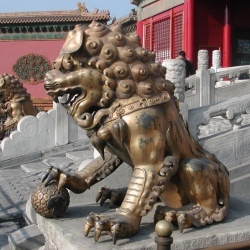
The US study gives the most in-depth look at the extent of China’s policing of discussions on microblogging sites.
Analysis of almost 60 million messages from China’s equivalent of Twitter suggested which topics were banned.
It also revealed that China tuned its censoring activity to be more aggressive in places where political unrest was high.
Word search
The study, reported in New Scientist, by David Bamman, Brendan O’Connor and Prof Noah Smith from the Language Technologies Institute at Carnegie Mellon analysed short messages sent via the Sina Weibo service.
The public programming interface to the Sina site let the trio grab 57 million messages sent between June 27 and September 30, 2011. Three months later they checked to see which messages disappeared from the service to identify which terms caught the attention of the censors.
The work showed that the social media censor was similar to the system overseeing Chinese web access.
That system, known as the Great Firewall, stops people visiting some sites outside China, returns no results for searches of banned terms, censors chat and vets blogs. Banned topics include the Falun Gong spiritual movement and human rights activist Ai Weiwei.
In a similar way, the study found that messages containing these banned terms tended to be deleted from the Sina Weibo service.
